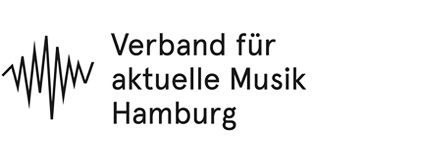PRÄSENTATION XVI - John Oswald

Diesmal ein Vortrag von John Oswald aus Toronto, Komponist, Saxophonist, Medienkünstler und Tänzer. Am bekanntesten ist er für die Prägung des Begriffes \“Plunderphonic” (to plunder= plündern). Hierbei geht es um eine absichtliche Copyright-Verletzung als kreativer Prozess (Audio Piracy as a Compositional Prerogative). Chartmusik und andere verfügbare Quellen werden zerhächselt und im Cut-Up-Stil neu zusammenstellt. Info: Composer, saxophonist, and sound artist John Oswald (b. May 30, 1953 in Kitchener, Ontario, Canada) is best known for his plunderphonics, which involves using samples of existing recordings to create a new work. His teachers included R. Murray Schafer and Barry Truax at Simon Fraser University and David Rosenboom, Casey Sokol, Richard Teitelbaum, and James Tenney at York University. Oswald first came to notice as an habitué in the mid-1970s of the Music Gallery, where his affiliations included Pitch (established in 1976 with Marvin Green and responsible for a variety of events held in total darkness), the Glass Orchestra, the New Music Co-op and, as founder and sometime editor, Musicworks. Oswald has performed throughout Canada and in the USA as an alto saxophonist, playing in both solo and group improvisational settings. Under Oswald's direction Pool, an improvisation collective originally established at the Gallery in 1979, was held on a weekly basis 1982-8 at the Cameron Public House. In dance, he has prepared scores (mostly tape) for Dancemakers, Tangente, Toronto Independent Dance Enterprise, and Bill Coleman's North American Experience (the full-length ballets Shane, 1987; Baryshnikov, 1987; Zorro, 1989), and for several choreographers - eg, Jennifer Mascall (Parade, 1986; Elle, 1989), Paula Ravitz and Denise Fujiwara (Skindling Shades,1987; renamed Spontaneous Combustion) and Fujiwara alone (Loud Colors, 1990), Holly Small (Wounded, 1988, Small Attack, 1990), Bill Douglas (Anima, 1990), and James Kudelka (Case of Death, 1991). He has participated as an accompanist and/or dancer in performances by Fujiwara, Small, Danceworks, the North American Experience, and others. In 1980 Oswald established the Mystery Tapes Laboratory, preparing and distributing music/sound collages on cassettes packaged with neither sources noted nor explanations given. In 1987 he reversed the principle with the EP Plunderphonics, which comprised four 'revised performances' created by the 'plundering' of recordings by Count Basie, Dolly Parton, and Elvis Presley, and of The Rite of Spring. A CD of Plunderphonics followed in 1989, with an additional 20 plundered performances. Although Oswald's sources were scrupulously acknowedged and the recordings given free of charge to musicians, critics, libraries, etc, the CD nevertheless was deemed to be in violation of Canadian copyright laws. Under the threat of legal action Oswald relinquished the master tapes and all undistributed copies to CRIA which in 1990 had them destroyed, a year before Negativland got sued for their U2 EP. Ironically, Oswald was subsequently commissioned by the US label Elektra to plunder its catalogue and prepared the CD Rubáiyát Plunderphonics (issued in 1991) to mark the company's 40th anniversary. Oswald has received other commissions from Arraymusic (Slide Whistles, 1976; Acupuncture, 1991) and the Kronos Quartet, and has prepared scores for the Recto Verso theatre company of Matane, Québec. His first piece for the Kronos, Spectre (1990), is in the composer's words 'for gesturing string quartet and the recorded allusion of a 1001 string orchestra'. http://en.wikipedia.org/wiki/John_Oswald_%28composer%29 http://www.pfony.com http://www.plunderphonics.com http://en.wikipedia.org/wiki/Plunderphonics Sonntag, 4. Oktober 2009 um 20 Uhr Blinzelbar, Grosse Bergstraße 168 (Frappantgebäude), Hamburg Der Eintritt ist frei.



